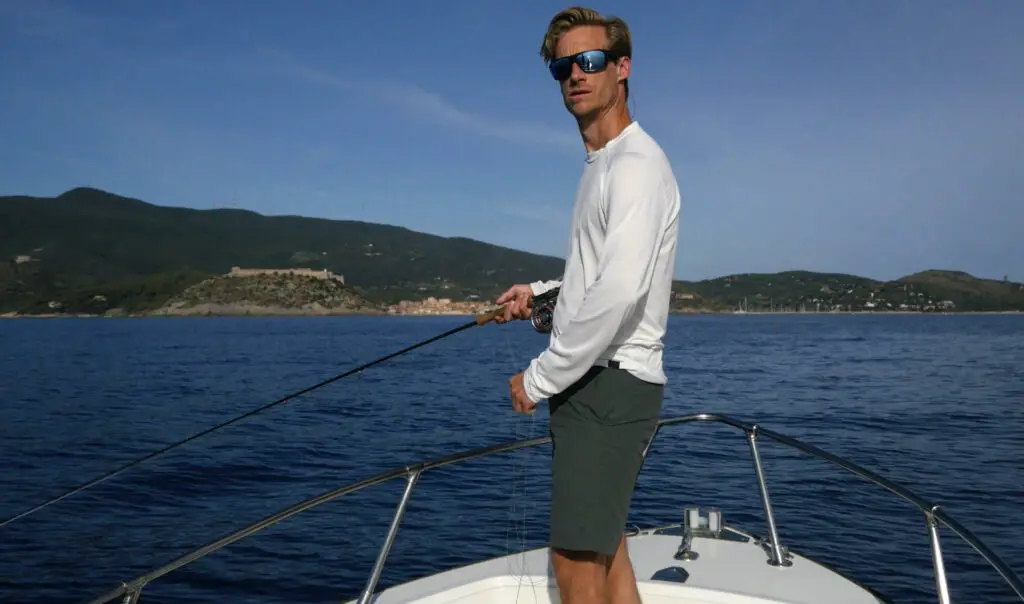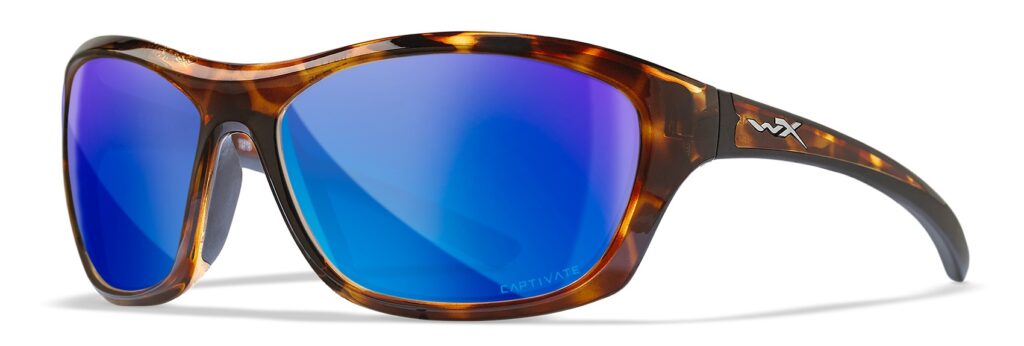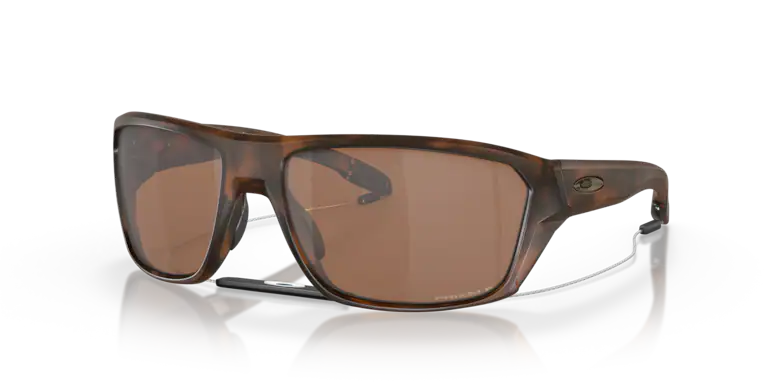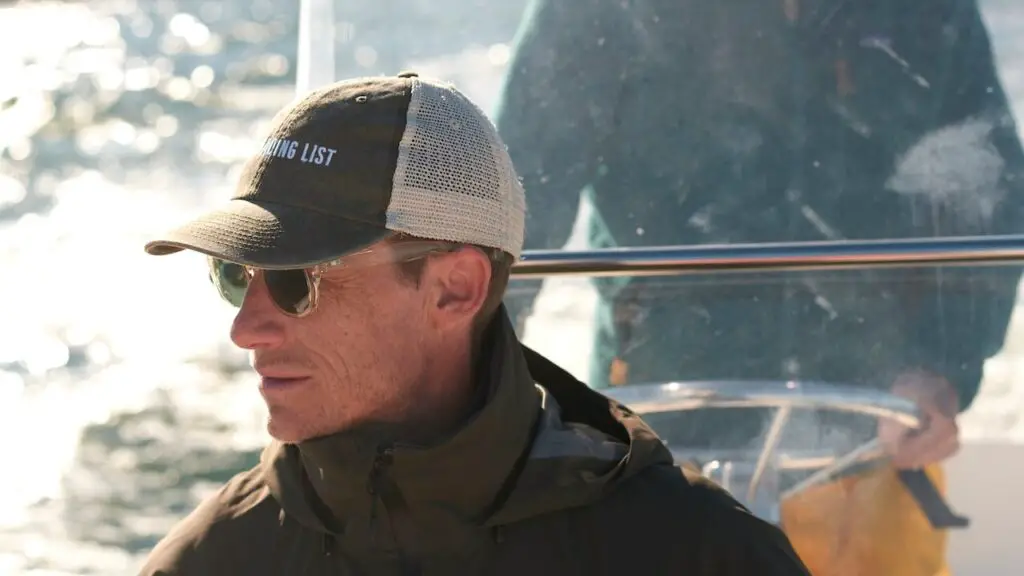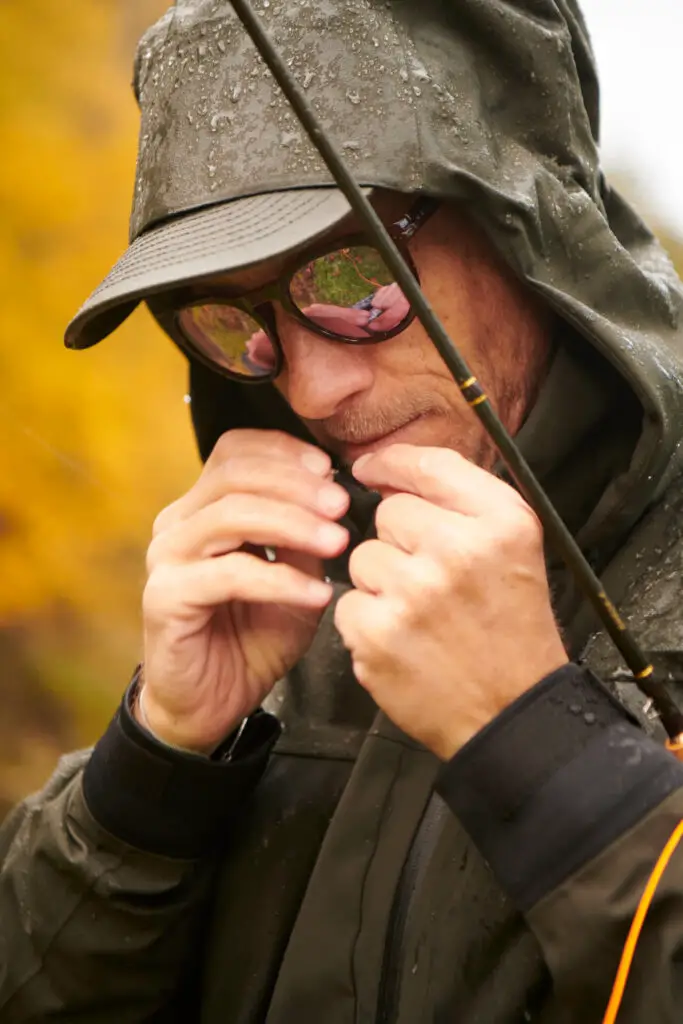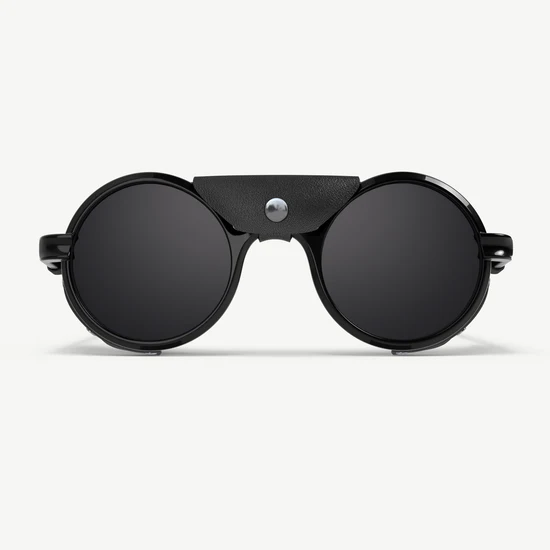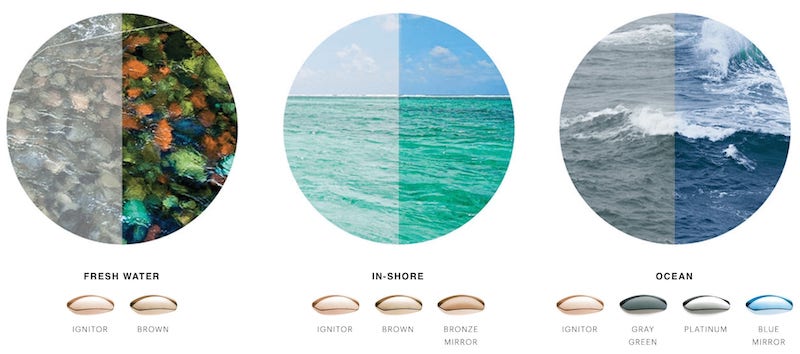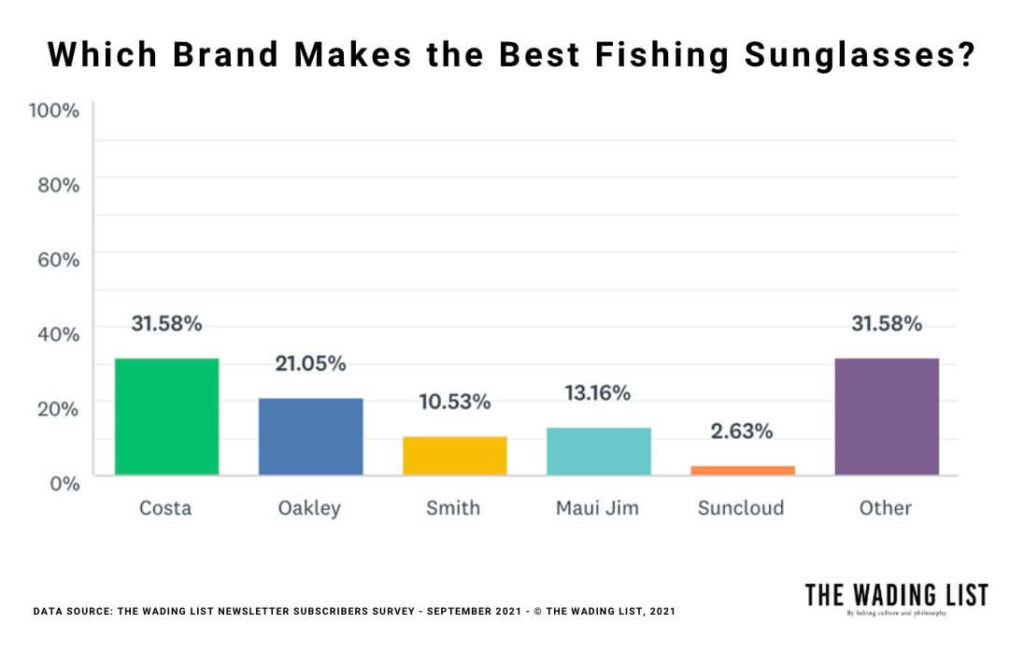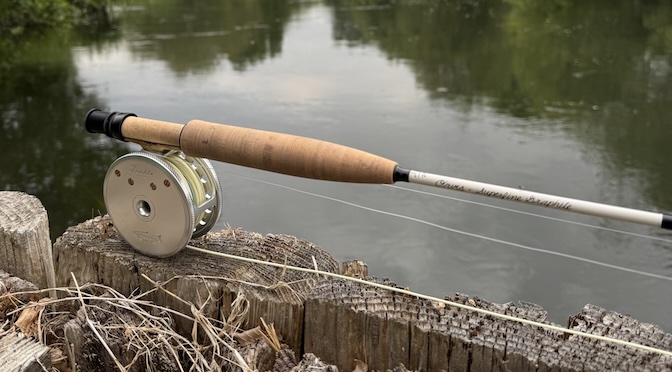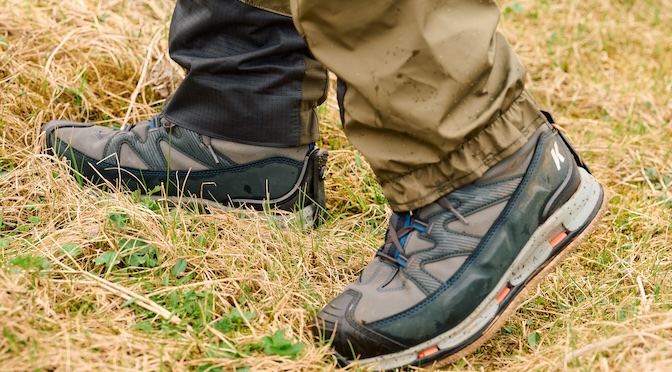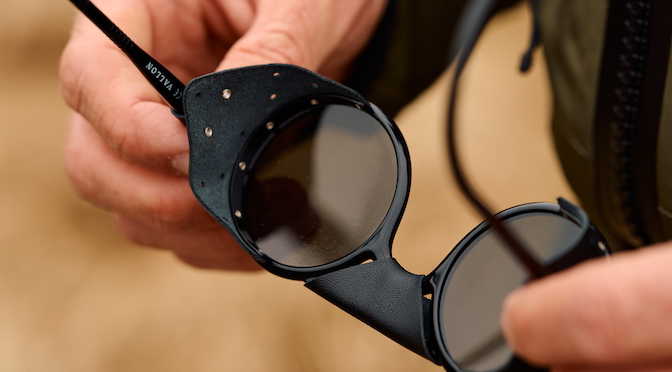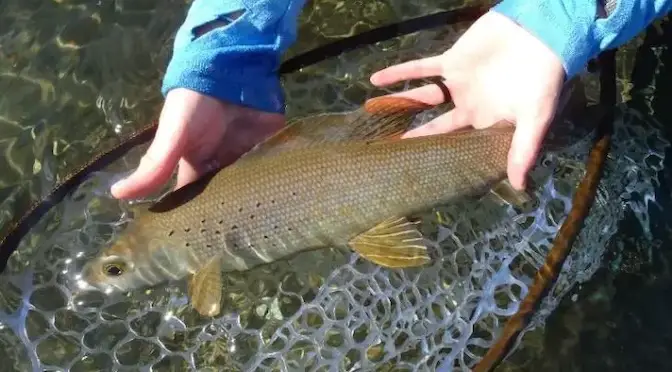Last updated on September 2nd, 2025.
- Small Stream Delight: 2025 Orvis Superfine Graphite Rod Review - September 3, 2025
- Wading Wisdom #13 – Simon Gawesworth - July 7, 2025
- On the Water with the Korkers Bantam Lite - June 26, 2025
Fly fishing sunglasses – one of the most important items when hitting the water.
Disclaimer: All products in this guide are independently researched by our team. We only recommend products we believe in and never get paid for the reviews. Learn more about our review process here. If you end up buying a product we might earn a small commission at no extra cost for you.
Our team of editors has tested dozens of fishing sunglasses to help you make a solid choice when it comes to the best fishing sunglasses on the market in 2025. We tested them in real world conditions on the water: from river fishing to lakes and the open ocean, you can be sure we looked for their strengths and weaknesses to find the top performers of the best fishing sunglasses of 2025.
MY TOP PICKS
-
Best Overall: Costa del Mar Fantail Pro
-
Best Style: Smith Optics Venture
-
Best Fit: Wiley X Glory
-
Best for Saltwater: Oakley Split Shot Prizm Polarized
-
Best Value for Money: Suncloud Milestone
-
Best Style: Roka Hamilton
-
Best Color Enhancement: Bajio Paraiso
-
Best Armless: Ombraz Teton’s
-
Best Retro: Vallon Heron Ocean
Using polarized sunglasses will improve your fishing. I love the clarity a good lens brings and you will spot fish you haven’t seen before. Plus it takes away the strain from your eyes during a long day on the water. Now without further ado, I’ll break down the best sunglasses for fishing out there.
Best Fly Fishing Sunglasses
In the following paragraphs I’ll show you my favorite fishing sunglasses. I made sure to pick models for different budges and styles. I’ll cover the strengths and weaknesses of each pair. If you want to dive deeper I’ve linked to the in-depth review of the respective model.
Best Overall Fly Fishing Sunglasses: Costa Del Mar Pro
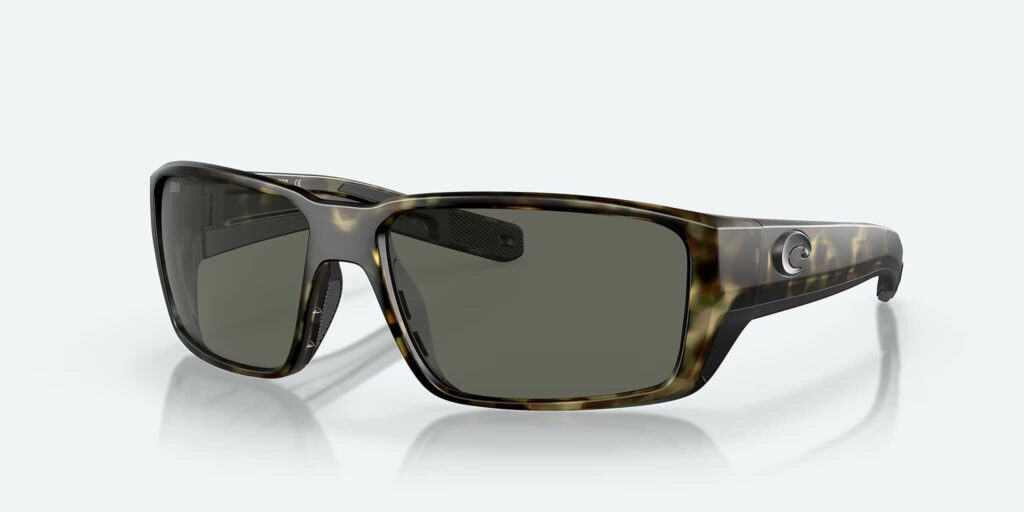
The Fantail Pro are the latest addition to my fishing sunglasses line up and top my list in 2025 (check my full video review further down). Here’s why: I love the clarity of the Costa lenses. They are second to none in my eyes. Yes, the price is steep (our specs: Matte Wetlands frame with gray polarized lenses comes in at $286) but the quality you get is superb. Take a look around next time when you spot a good fly fisherman – chance’s are high he’s wearing a pair of Costas.
The size L will fit most faces (even the bigger ones). I like the fact that their wide temples block out most of the UV rays. This is especially important if you plan on fishing in the open water or on very bright days. The glass lens is highly scratch resistant and blocks 100% of the UV rays. I also like the fact that the nose pad does its job properly. Even on hot days they won’t slide off your nose when you’re sweating. You have many colors to choose from. The gray lens is a great allrounder.

Best Style: Smith Venture
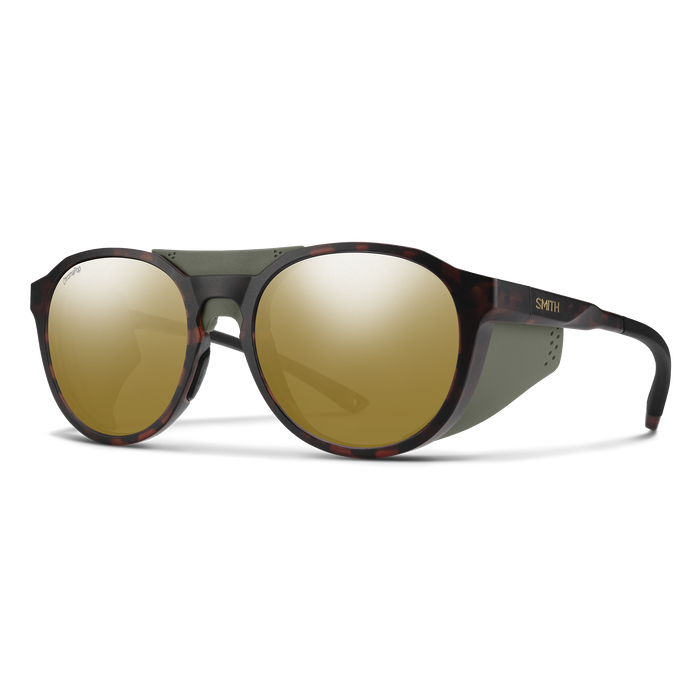
I’ve always trusted Smith Optics when it comes to fishing sunglasses. They’ve been making some of the best polarized lenses for years, and I really appreciate how their ChromaPop technology takes things up a notch. It doesn’t just cut glare—it makes colors pop and everything look sharper, which makes a big difference when I’m out on the water. Their latest release, the Venture (you can read my full review here), combines that ChromaPop clarity with polarized lenses, plus it has removable side shields and a comfortable nose pad.
What I love most about these sunglasses is how versatile they are. On those blindingly bright days, I keep the side shields on to block out the harsh rays that sneak in from the sides. But when the sky gets cloudy or I want a bit more light, I just take them off. It’s such a simple feature, but it really changes how the sunglasses perform—and it makes my time on the water that much more enjoyable.
Best Fit: Wiley X Glory
The Wiley X Glory has quickly become one of my favorite pairs of fishing sunglasses. What I love most about them is the snug, secure fit. No matter how hard I’m casting or moving around, these shades stay exactly where they should, thanks to the rubberized nose pads and temple grips. I went with the Captivate Polarized Blue Mirror lenses, and they’re perfect for those really bright days on the water.
Another thing that stands out to me is how tough these frames are. They’re made from Triloid nylon, which is one of the strongest non-metal materials out there, and the shatterproof lenses give me peace of mind when I’m out in the elements. When you put together the durability, the comfort, and the performance—and then realize they’re about $100 less than the Oakley Clifden or Costa Fantail Pro—the Glory really feels like a smart choice.
Best for Saltwater: Oakley Split Shot Prizm Polarized
The Oakley Split Shot Prizm Polarized Sunglasses (you can read my full review here) really hit the sweet spot between style and functionality. It’s obvious they were designed with fly fishers in mind—the wide temples do a great job at blocking out glare, and the integrated (and removable) leash is a small but brilliant feature that’s saved me from losing them to the water more than once.

Of course, the polarization is top-notch, but what really stands out to me is the color enhancement. I’ve tried them with both the Prizm Tungsten and the Deepwater lenses, and in both cases, the clarity and contrast were outstanding. They’re definitely on the pricey side, but I think they’re worth it, especially since I can use them for other sports like skiing, sailing, or even mountain biking.
Best Value for Money: Suncloud Milestone
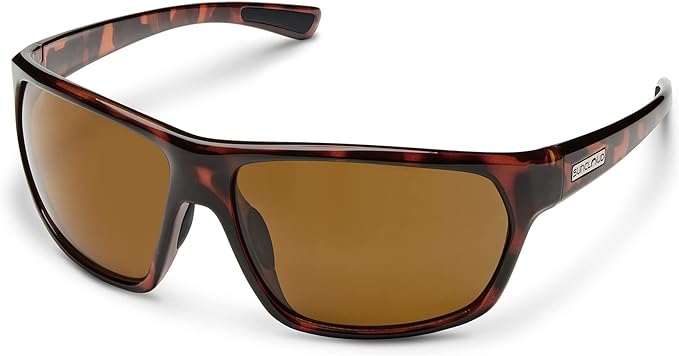
The Suncloud Milestone (you can check out my full review here) is hands down my top pick when it comes to value for money. At just over $50, these sunglasses hold their own against options that cost several times more, like the Costa Fantail Pro, Oakley Split Shot, or Wiley X Glory.
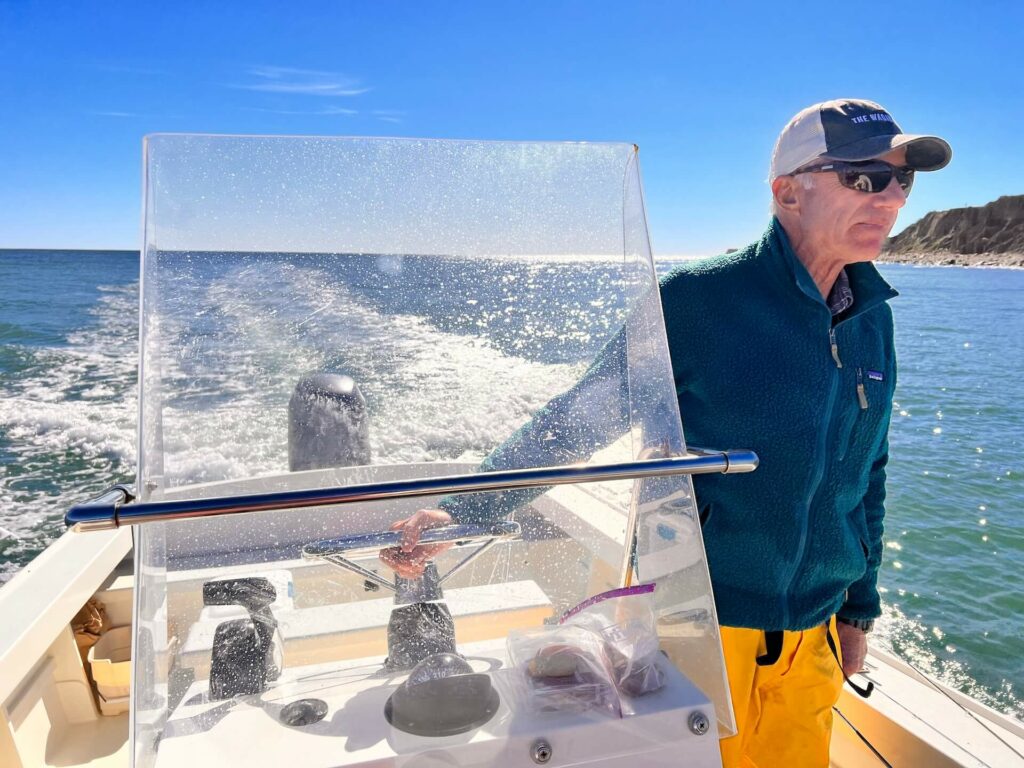
I put the Milestone to the test chasing stripers and albies off Montauk, NY, and they really impressed me—especially when it came to lens clarity and polarization. They also fit perfectly: snug enough to stay put, but still comfortable to wear all day. I like that there’s a nice variety of frame and lens colors to choose from, too. If I had to point out one downside, it’s that there isn’t a special low-light lens option for these frames.
Best Style: Roka Hamilton
The Roka Hamilton (you can read my full review here) doesn’t look like your typical pair of fly fishing sunglasses at first glance, but I’ve grown to really appreciate them for a few key reasons. First and foremost, the lens clarity is excellent, and the polarization is just as good—both absolutely essential when I’m out on the water.
They also stay put, which I love. The rubberized nose pads and temple tips keep them secure even when I’m moving around a lot. Plus, there’s a nice variety of frame and lens combinations to choose from, which makes it easy to get the look and performance I want. If I had to nitpick, I’d say the narrower temples don’t block as much glare as some other models, and there isn’t a low-light lens option, which can be limiting in certain conditions.
Best Color Enhancement: Bajio Paraiso
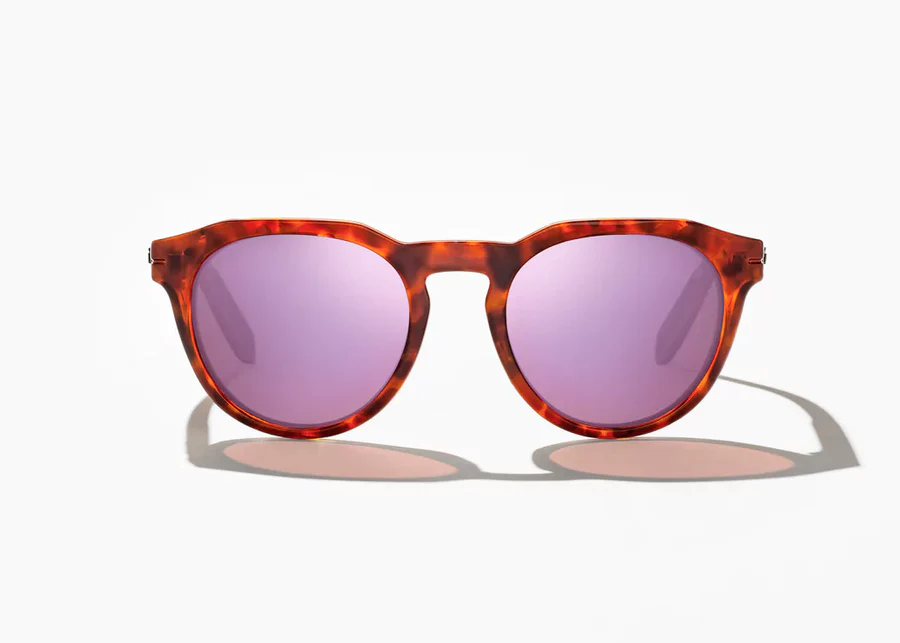
Florida-based Bajío has been making waves in the fly fishing world over the last few years with their fresh designs and eco-friendly, bio-based frames—and I’ve definitely become a fan. The Bajío Paraiso (you can check out my full review here) is one of their most popular models and easily my favorite when it comes to style. But don’t let the good looks fool you—these shades are built with some of the best materials out there, so they perform as good as they look.
They come in a wide range of polarized lens colors, which I really appreciate, and I’ve found the Paraiso to be a perfect fit for small- to medium-width faces. For me, they strike that sweet spot between style and function, making them a great all-day option whether I’m fishing or just hanging out by the water.
8. Ombraz Teton’s Polarized
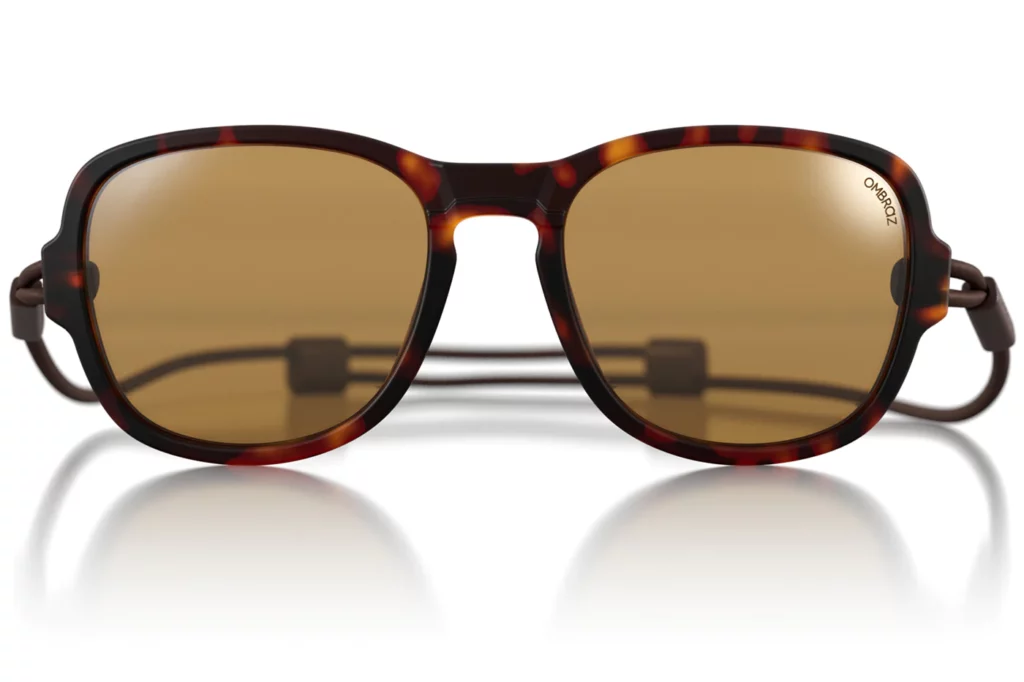
At first, the idea of sunglasses without temples sounded strange to me—but after taking the Ombraz Teton Polarized on a fly fishing trip to Iceland, I was genuinely impressed with how well they worked. Instead of traditional arms, these shades use an adjustable cord made from 100% recycled marine-grade Japanese nylon, which makes them incredibly comfortable and far less likely to break.

I also really like that they come with removable side shields, which are a lifesaver when I’m on a boat dealing with intense glare. And because they don’t have temples, they’re super versatile—I’ve worn them for other outdoor activities where a fall might destroy regular sunglasses, and they’ve held up perfectly. The lenses, made by German manufacturer Zeiss, deliver excellent clarity and polarization, making them great for fishing or just about anything outdoors.
9. Best Retro: Vallon Heron Ocean Polarized
I wore the Vallon Heron Ocean Polarized (read my full review here) on overcast days out on the water, and they performed exactly as they were designed to. The grey-tinted lenses with 14% visible light transmission are perfect for those lower-light conditions. If you’re looking for something better suited for really bright days, I’d go for the dark grey-blue lens option.
What I really like about the Heron Ocean is how they blend cool, classic style—reminiscent of old-school alpine mountaineering shades—with modern performance and versatility. The side shields and centerpiece are removable, giving me the flexibility to adjust them depending on the conditions. There’s even an optional nose protector you can swap in for extra coverage. On top of that, the fully adjustable temples let me dial in the perfect fit, which makes them really comfortable to wear for long stretches.
The technology behind polarized fishing glasses
Polarized fishing sunglasses emphasize certain parts of the light and provide stronger contrasts. They are important when fly fishing because their special lenses prevent or reduce light reflexes and reflections for example on the water’s surface.
Your eyes get less tired because they don’t constantly have to adapt to new lighting conditions. First and foremost they enable you to literally look into the water. Spotting fish gets easier no matter whether you fish in fresh or saltwater. Polarized fishing glasses also help you to figure out underwater structures more precisely or can support your vision when wading.
This image from Smith Optics’ website neatly explains the advantages of using polarized sunglasses for fishing:
Factors to Consider Before Buying
Fishing Environment
The time of day and the environment you’re fishing in make a difference in the lenses and frames you should pick. When you’re mostly fishing in saltwater you will often encounter bright days that will come with a lot of glare. For these circumstances, a snug fit and lens colors such as blue or green are ideal. In that case, also make sure to choose a pair that doesn’t feature any components that could corrode.
If most of your fishing happens on rivers or inshore water bodies a snug fit is not as crucial but still highly recommended. A lens color of yellow, orange or light brown is ideal if you you’re often fishing into the night or in other low light conditions.
Additional Gear
Sunglasses for fishing are essential for any kind of fishing. To protect yourself from the sun, you can use additional pieces of gear such as a hat, face masks (neck gaitors) and fishing shirts with UV protection.
How to Choose the Best Fly Fishing Sunglasses
When choosing a pair of fly fishing glasses there is a number of factors to consider: the most important one being the fit of the sunglasses. They need to match the shape of your face and rest firmly on your nose. Otherwise you won’t have a lot of fun on the water.
Secondly, your fishing glasses should definitely be polarized. We will explain this technology in more detail later. It basically means that certain rays of light are filtered which takes the glare off and enables you to see fish you otherwise wouldn’t see. In our review, the Smith Venture Sunglasses ticked both of these boxes to our fullest satisfaction.
In this article we want to share our experiences and introduce you to a number of different options concerning lenses and shapes of the polarised sunglasses for fishing. For our test we selected multiple high quality lenses from well known brands such as Costa, Oakley and Smith Optics but also included sunglasses that cost a fraction of the well known brands to see how they can keep up.
We chose different shapes, glass technologies and glass colors. The reason behind this was to give you a better overview about what options for sunglasses for fishing are out there. Polarized glasses are the standard in fishing glasses nowadays. Let’s jump right into the best polarized sunglasses for fishing on the market.
Author Biography
Why you should trust us: Leonard Schoenberger and his team have tried and tested hundreds of rods, reels and other fly fishing gear over the years. We always express our honest opinions about a product to help you make a solid purchase decision. We never get paid for reviews and are proud of keeping our editorial independence. Our focus is on bringing you the latest in gear so you can have a great time at the water. Thanks for being a reader of The Wading List.
Comparison Table: Best Polarized Sunglasses for Fishing
| Model | Price | Lens colors | Specs | What’s included | Our Rating |
| Smith Venture | $209-289 | 10+ | Lens Height: 42mm – Lens Width: 62mm – Bridge Width: 17mm – Temple Length: 120mm | Integrated, detachable leash, hard case, microfiber bag | Best Style |
| Wiley X Glory | $185 | 3 | Lens Height: 42mm – Lens Width: 63mm – Frame Width: 130.4mm – Temple Length: 125mm | Zippered Clamshell Case, Cleaning Cloth with Logo, Leash Cord with Rubber Grips | Best Fit |
| Oakley Split Shot Prizm Polarized | $260 | 7 | Lens Height 43.5 mm – Frame Width 132 mm – Arm Length 132 mm – Lens Width 64 mm – Bridge Width 17 mm | Detachable leash, leather protective case with clasp | Best for Saltwater |
| Costa Del Mar Fantail Pro | $273 | 4 | Lens Height: 44.9mm – Lens Width: 62.9mm – Bridge Width: 15mm – Temple Length: 120mm | Protective case and cleaning cloth | Best Overall |
| Suncloud Boone | $54.95 | 6 | Lens Height: 46mm – Lens Width: 65mm – Bridge Width: 16mm – Temple Length: 134mm | Microfiber cloth and protective case | Best Value for Money |
| Roka Hamilton | $185 | 5 | Lens Height: 41mm – Lens Width: 49mm – Bridge Width: 21m – Temple Length: 142mm | Case and cloth | Most Stylish |
| Bajio Paraiso | $209 | 7 | Lens Width: 47 mm – Lens Depth: 52 mm – Bridge Width: 20 mm – Temple Length: 140 mm | Protective case and cloth | Best Color Enhancement |
| Ombraz Teton | $130 (+$50) | 3 | Regular and XL fit – does not have temples | Protective case and cleaning cloth | Best Armless |
| Vallon Ocean Heron | $271 | 4 | Lens Height: 48mm – Lens Width: 48mm – Bridge Width: 24mm – Temple Length: adjustable | Removable side shields, protective cloth | Best Retro |
Best Fly Fishing Sunglasses FAQs
Why do I need specialized sunglasses for fishing?
Fishing sunglasses are designed to reduce glare from the water’s surface, improve underwater visibility, and protect your eyes from harmful UV rays. They enhance your ability to spot fish and other underwater structures, making your fishing experience more productive and enjoyable.
What is polarized technology in sunglasses?
Polarized lenses contain a special filter that blocks intense reflected light, reducing glare. This is especially beneficial for anglers, as it helps improve visibility beneath the water’s surface, making it easier to spot fish and underwater structures.
Do lens colors matter when choosing fishing sunglasses?
Yes. Different lens colors serve different purposes:
Gray: Best for all-around use and clear, sunny days. It provides true color perception and reduces eye fatigue.
Amber/Brown: Improves contrast and clarity, ideal for overcast or cloudy conditions.
Yellow: Great for low-light conditions like dawn or dusk.
Green Mirror: Good for inshore fishing and high-sun conditions.
Are there fishing sunglasses suitable for those who wear prescription glasses?
Absolutely! Many brands offer prescription options or fit-over designs that can be worn over your regular glasses.
How do I take care of my fishing sunglasses?
Rinse them with fresh water after exposure to saltwater, avoid cleaning with abrasive materials, store them in a protective case, and avoid leaving them in extremely hot conditions, like a car’s dashboard.
How important is UV protection in fishing sunglasses?
Extremely important. Prolonged exposure to UV rays can harm your eyes. Ensure your sunglasses offer 100% UV protection to shield your eyes from UVA and UVB rays.
Do I need fishing sunglasses even in overcast conditions?
Yes, even on cloudy days, the water can produce glare, and harmful UV rays can penetrate cloud cover. Polarized lenses can also help enhance contrast in overcast conditions.
Can I use regular sports sunglasses for fishing?
While you can use any sunglasses, fishing-specific ones offer the advantages of polarization and certain lens colors optimized for water conditions.
Are there sunglasses designed specifically for deep-sea vs. freshwater fishing?
Yes, for deep-sea or offshore fishing, sunglasses with blue or gray lenses are popular, as they provide a natural color perception in bright conditions. For freshwater or inshore fishing, amber or green mirror lenses are preferred for their enhanced contrast and depth perception.
How do I ensure a good fit for my fishing sunglasses?
Look for adjustable nose pads, flexible temple arms, and a wrap-around design to prevent light from entering from the sides. Trying them on and considering reviews or recommendations can also be beneficial.
Read more of our Gear Guide here:
10 Best Wading Boot for Fly Fishing
Best Fly Fishing Waders – Buyer’s Guide
Best Fillet Knife for Preparing your Catch
Note: If you click one of the links and end up purchasing a product we earn a small commission at no extra cost for you. We only recommend products for purchase that we tested and believe in. Thanks for your support!

